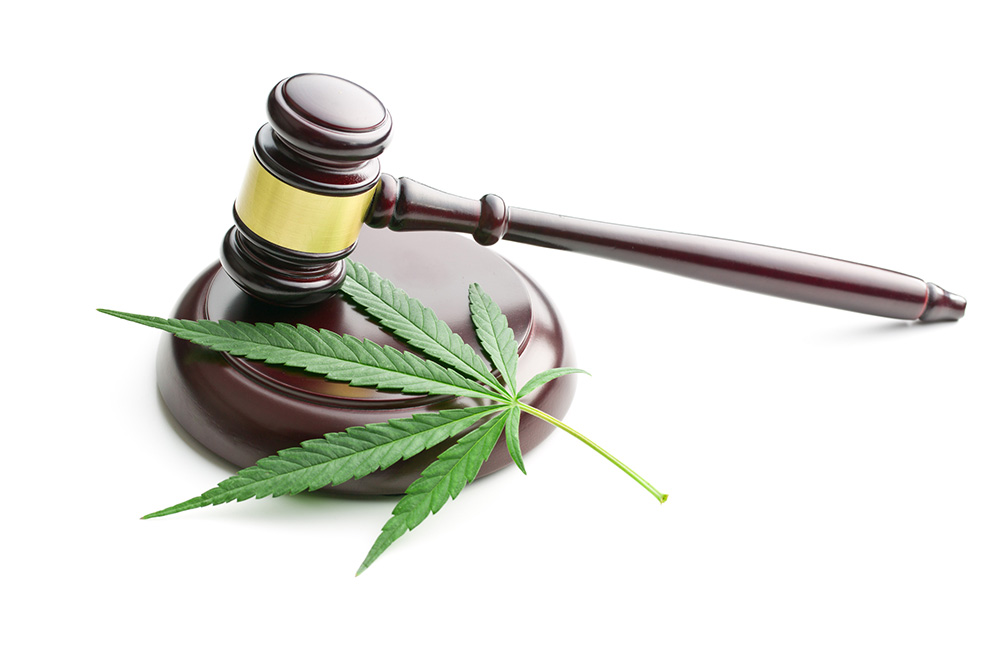Starting July 1, Virginia will be the first state in the southern United States to allow the use of recreational marijuana. That’s because on April 21, at the close of this year’s General Assembly session, Governor Ralph Northam signed a historic marijuana legalization bill allowing adults to possess small amounts of pot. Although the original bill that passed the General Assembly wouldn’t have taken effect for a few years, pressure from civil rights and other advocacy groups led to amendments late in the legislative process, which advanced the effective date to July 1. While the date is fast approaching, the regulatory and logistical issues are complicated and will likely take years to address fully.
What the New law Says
Virginia’s new law permits adults over the age of 21 to possess up to an ounce of marijuana and allows for the home cultivation of four plants. Adult possession of more than an ounce is subject to a $25 civil penalty, while possession of more than a pound remains a criminal felony. Children and teenagers may not possess marijuana or access plants grown at home. In addition, the new law establishes a process to expunge past criminal convictions, which many civil rights groups supported.
While the decriminalization of marijuana will be complete within a month, the regulatory process for the purchase and sale of pot will take much longer. A new agency called the Virginia Cannabis Control Authority will oversee and regulate the commercial market for marijuana, and retail sales aren’t expected to begin until January 2024.
Importantly, the General Assembly will be required to reenact the legislation’s retail sales provisions next year. Accordingly, the regulatory requirements for opening a marijuana dispensary for general public retail sales remain to be seen.
Uncertainty for Employers
Also unknown is the new marijuana law’s ultimate impact on the employee-employer relationship. As currently enacted, the law doesn’t address whether employers will be able to (1) maintain a “marijuana free” workplace or (2) mandate testing for the drug’s use. Currently, you may maintain drug testing policies for marijuana. Current Virginia law generally gives you wide latitude in setting policies to test and to fire employees for legal drug use outside of working hours.
Likewise, the new state law doesn’t change either the federal laws criminalizing marijuana or the drug-free workplace requirements of the Federal Acquisition Regulations (FAR), mandated for federal government contractors and subcontractors.
Accordingly, for the moment, the status quo remains. Virginia employers still have the authority to implement drug testing and retention policies related to marijuana usage.
What’s on The Horizon
That said, the law in this area is likely to develop rapidly over the next year and continue to evolve during the years to come. On the federal level, the pressure on Congress to decriminalize marijuana is growing, which could affect federal government contracting requirements in the future. On the state level, the General Assembly will likely be faced in the not-too-distant future with having to address the employment issues arising from the new marijuana law.
A model for the state legislation probably will be the recently enacted medical cannabis oil law, which also takes effect on July 1. That law prohibits Virginia employers from discharging or disciplining employees for the lawful use of medical cannabis oil outside the workplace “pursuant to a valid written certification issued by a practitioner for the treatment or to eliminate the symptoms of the employee’s diagnosed condition or disease.”
Under the medical cannabis oil law, you still can prohibit the use of cannabis oil products during work hours and at the workplace. In addition, federal contractors and subcontractors can continue to comply with the federal government requirements for maintaining a drug-free workplace.
The medical cannabis oil law also allows you to impose sanctions on employees who are under the influence of cannabis at work. That said, the fact that traces of cannabis can remain in the human body for weeks means it will be difficult for many employers to determine whether an employee is impaired simply by using a drug test alone.
While medical cannabis oil and recreational marijuana are different in terms of their nature and effect, there likely will be a strong push in the General Assembly to treat them similarly and impose limits on an employer’s ability to discipline or discharge an employee for recreational pot use during nonwork hours and outside the workplace.
What Should You Do?
On July 1, it will be business as usual for Virginia employers, but it may not stay that way for long. Therefore, you should continue to monitor the changing social and regulatory environment and consult with legal counsel to make your policies stay compliant as the law develops. While the historic, first-in-the-South recreational marijuana legalization will take place soon, the regulatory and business impacts are just beginning, with no clear endpoint in sight.
M. Jarrad Wright is a partner at DiMuroGinsberg P.C. in Alexandria. You can reach him at mjwright@dimuro.com.
The post Virginians Will Be Lighting Their Joints on July 1 appeared first on HR Daily Advisor.
